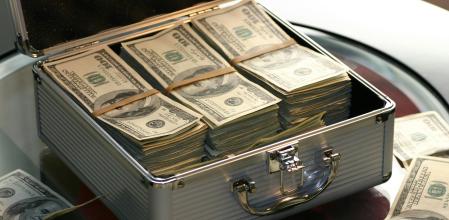Your Bank Isn’t Always Your Best Friend
Saving money is already hard enough. But once you finally start to build a cushion, another question quickly follows: Where should you actually keep it?
For most people, the default answer is: just leave it in the checking account. It’s easy, familiar, and accessible. But that choice quietly costs you. Every day your money sits idle in a low-interest account, it loses value to inflation. It doesn’t grow, and over time, it buys you less.
On the other extreme, locking your cash into a product that’s too restrictive — like a fixed-term deposit — might leave you stuck when you actually need the money.
The real solution? Balance. You want your money to be safe, growing slowly, and still within reach when life throws something your way.
And that balance starts with one simple shift: don’t treat all your savings the same.
What Is This Money For?
Before you decide where to keep your cash, ask yourself why you’re saving it in the first place.
Are you building an emergency fund — something you might need access to at any time?
Are you saving for a short-term goal — like a trip, a car, or a new laptop?
Or is this cash you eventually want to invest — just not yet?
The answer matters. Because each type of savings deserves its own home.
Smarter Places to Park Your Cash in 2025
High-Yield Savings Accounts (HYSAs)
For day-to-day savings or emergency funds, a high-yield savings account is hard to beat. These accounts typically offer 4% APY or more and are fully insured. Your money stays liquid — meaning you can pull it out at any time — but earns a steady return in the meantime.
Top providers like SoFi, Ally, Marcus by Goldman Sachs, and Capital One 360 all offer competitive options with no monthly fees. If you’re still keeping your emergency fund in a checking account, this is the easiest upgrade you can make.
Treasury Bills (T-Bills)
If you know you won’t need the money for a few months — say, three to twelve — Treasury bills offer a near-perfect middle ground. Backed by the U.S. government, they’re considered one of the safest investments available. Returns in 2025 hover around 5%.
You can buy them through platforms like TreasuryDirect or through brokerages like Fidelity or Public. Bonus: the interest you earn is exempt from state and local taxes.
Money Market Accounts
Money market accounts are similar to savings accounts but often come with slightly higher interest rates — around 4.5% APY — depending on the provider. They’re best used for stable savings you still want quick access to, though many limit the number of withdrawals per month.
Look for ones offered by online banks or credit unions for the best rates.
Brokerage Cash Accounts
If you’re planning to invest soon but haven’t made the move yet, don’t let your money sit idle. Many brokerage accounts now offer interest on uninvested cash, with rates up to 5%. Firms like Charles Schwab, Fidelity, and Robinhood all offer options here — though you’ll want to watch out for account minimums or hidden fees.
Where Not to Keep Your Money (If You Want It to Grow)
Checking Accounts
They’re great for daily spending — but terrible for savings. Most pay little to no interest, usually around 0.01%. Keep only what you need for bills and regular expenses.
Under Your Mattress (or in a Drawer)
Keeping cash at home might feel safe, but inflation silently eats away at its value. A 3–4% loss each year adds up quickly. Use physical cash only for true emergencies — and even then, just a small amount.
Certificates of Deposit (CDs)
While CDs offer guaranteed interest, they often come with early withdrawal penalties. Unless you’re 100% sure you won’t need the money for the entire term, they may not be worth the tradeoff in flexibility.
A Simple Rule: Match the Money to the Goal
- Emergency fund? → Use a high-yield savings account
- Money for the next 6–12 months? → Try T-bills or a money market account
- Planning to invest soon? → Keep it in a brokerage cash account
- Monthly expenses? → Use your checking account
You Don’t Need the Highest Interest — You Need a Plan
You don’t need to outsmart the market with your parked cash. You just need to know:
- Where your money is
- Why it’s there
- How quickly you can get to it
When your savings are organized by purpose — and earning a bit of passive growth along the way — you stop feeling behind. You feel prepared.
You don’t need to be rich to feel in control of your money. You just need a smart system. And now you’ve got one.



